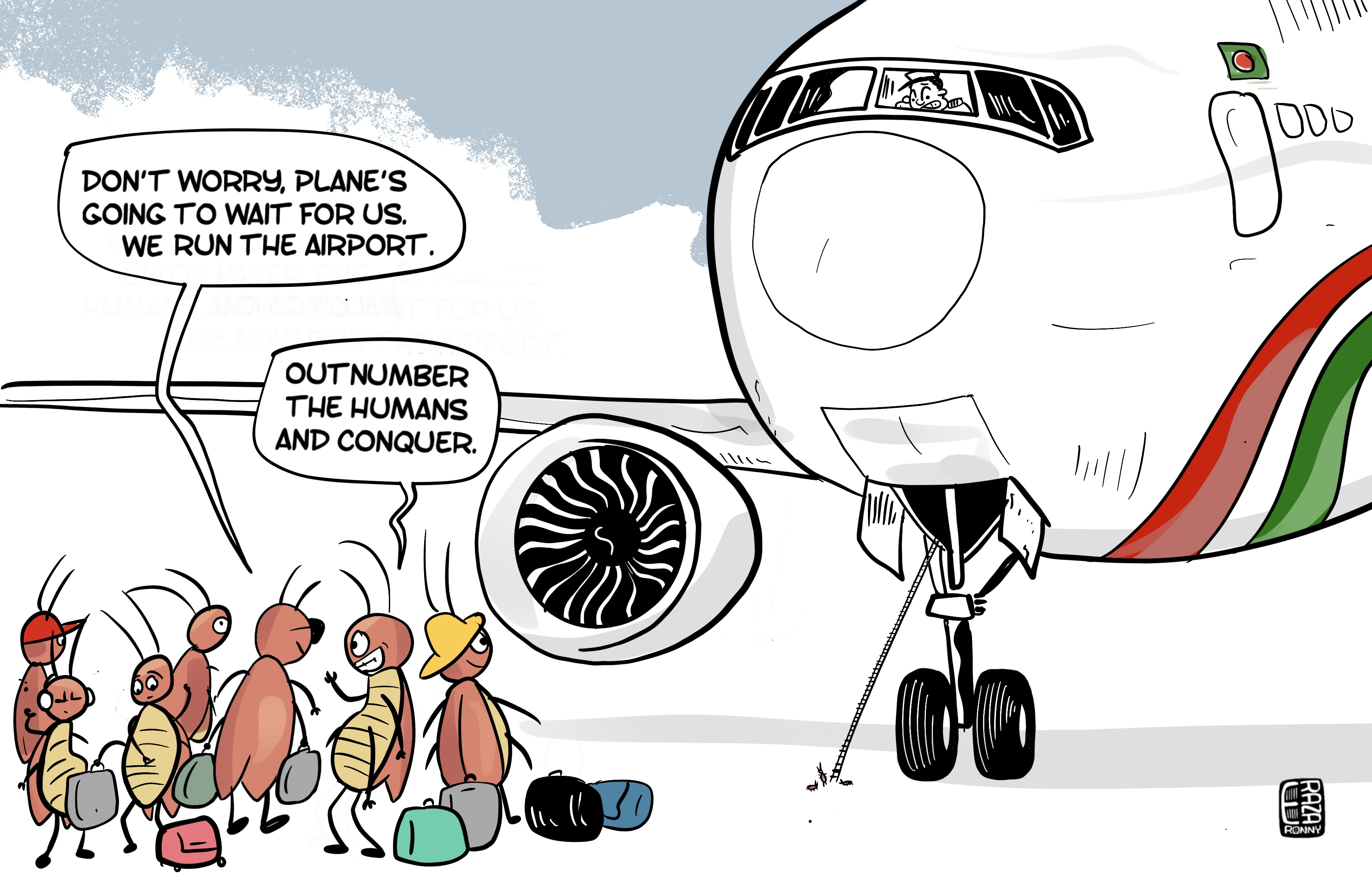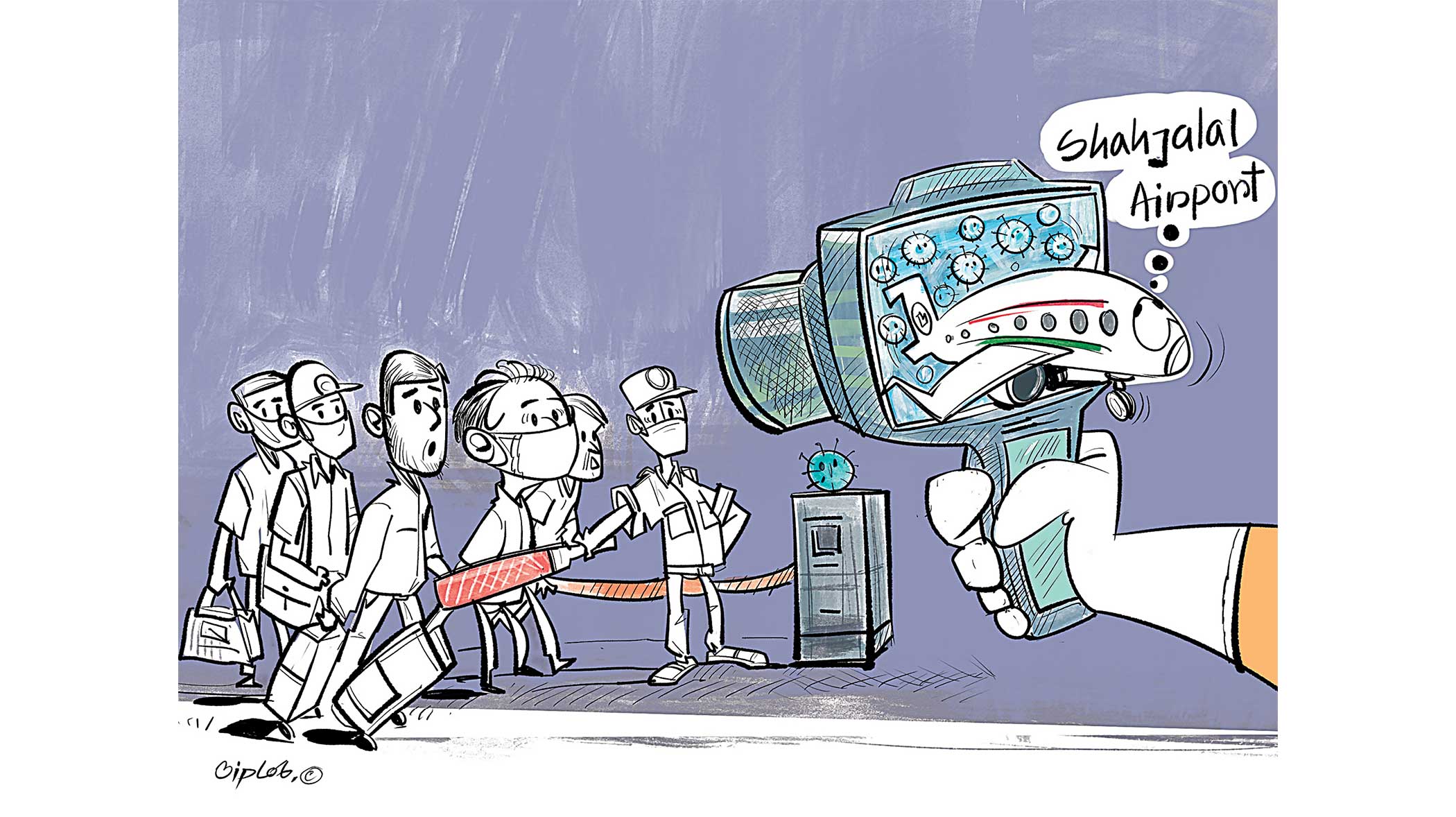When the mind gets foggier than the weather

Some people believe this cold, foggy weather is romantic and can elicit all kinds of creative thinking, while sipping hot beverages and munching on unnecessary carbohydrates. I am not one of them, I mean, the being-romantic-about-fog part, not the consuming of refreshments (which I eagerly partake in, regardless of weather conditions). No, to me, this foggy weather is just, well, fogging up not just my glasses, but my brain too. I feel distracted and dull, my sinuses get clogged, and this pale sepia-tinged ambience, created by the chemistry between fog and pollution to give birth to this suffocating smog, is just not giving me any inspiration to write anything meaningful.
You see, I feel really foggy-brained when I read that our Dhaka airport's authorities have decided to shut down the Instrument Landing System that helps planes land during periods of poor visibility. Why would they do this at a time when airlines are having trouble scheduling flights because of the dense fog and when pilots are tearing out their hair (those who have some) trying to land through the cloak of invisibility? Apparently, it's because they are upgrading the system to install a better one that will provide better visibility during the foggy days. If you are going to be silly enough to ask why they decided to "upgrade" just when denser fog had already been predicted and wonder, "So, wouldn't it have been logical to do this at a time when there was no fog?"—you obviously don't know how things work around here.
Logic is subjective, which means that, contrary to universal beliefs, one person's logic is another person's craziness. While pilots and other officials are grumbling about the timing, the airport regulatory authorities are spewing fancy justifications: the new system has to be calibrated by an international organisation and then audited, which has to be pre-scheduled and who on earth would mess with a schedule that is carved in stone and more important than the safe landing of passenger planes? Illogical!
Why, for instance, would you breeze through immigration only to wait an hour and a half for your luggage? Well, because the luggage truck guys' shift has changed and there's a bit of a gap until the next shift starts, or the truck is being used for another flight so you just have to wait till it's back and meanwhile ward off the mosquitoes as best as you can. See, there is an explanation, however infuriating, to each of these delightful conundrums.
Shutting down the fog-defying system just when Dhaka is at its foggiest follows the same logic of waiting all throughout the dry season and then digging up the roads for maintenance, repair, gas lines, or water lines just before monsoon. Or the logic of starting a larvicide-spraying spree well into the dengue season, after a few hundreds have already died of the disease.
There are many things that make me foggy these days. Like the recent epiphany of the Dhaka South City Corporation in deciding to take "stern action" against air polluters. This category includes personnel involved in construction or maintenance work (such as road excavation and development projects), who will be held accountable for the air pollution generated by these activities that pollute water bodies. No doubt, this move follows Dhaka coming second on the list of cities worldwide with the worst air quality. But Dhaka has maintained its position in the first, second, or third positions in the Air Quality Index (AQI) for quite a few years and is experiencing the choking consequences that come with such admirable consistency. Why did it take several years for the DSCC to decide to become "stern"? Is it because we have a new environment minister who may actually do something about the dusty fog of our city? Will he also tackle the issue of the black smoke-emitting buses, some of which belong to various state agencies and Very Important People? We hope the fogginess of the matter will be cleared up soon.
If all this is not befuddling your grey cells, then think about these realities: we have hospitals that have sophisticated medical machines but no trained staff who can operate them, so they become obsolete; or hospitals with enough staff but also essential equipment such as X-ray machines or radiology machines which went out of order many moons ago and have not been replaced—because, who knows? In fact, here's a riddle that keeps muddying my mind: we see high unemployment among educated youth, yet from public hospitals to city corporations to primary schools to universities, severe shortage of manpower is cited as reasons behind why these organisations cannot be as efficient as expected, even though there are many vacant posts there which remain unfilled for years on end. So, why have we not been able to train these jobless, hapless young people and fill the vacant posts and get the life-saving equipment in hospitals up and running? Haven't the foggiest idea.
Aasha Mehreen Amin is joint editor at The Daily Star.
Views expressed in this article are the author's own.
Follow The Daily Star Opinion on Facebook for the latest opinions, commentaries and analyses by experts and professionals. To contribute your article or letter to The Daily Star Opinion, see our guidelines for submission.




 For all latest news, follow The Daily Star's Google News channel.
For all latest news, follow The Daily Star's Google News channel. 


Comments